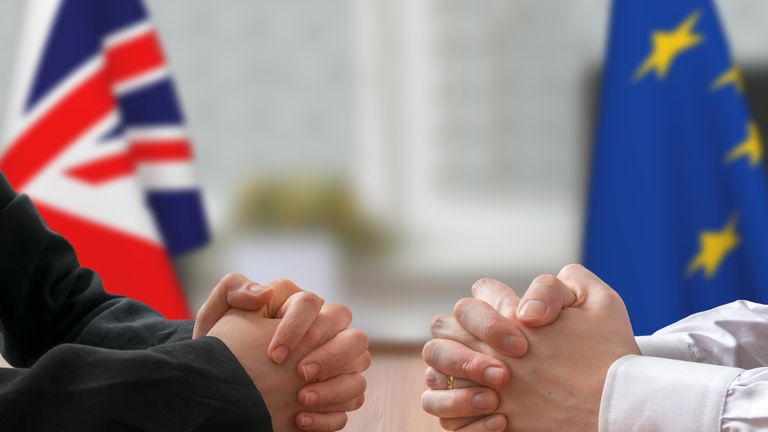Theresa May accelerates into Brexit tidal wave
The PM finally chooses to dispense with the fudge, clear the fog, and try to get down to the actual business of Brexit transition.
Tuesday 10 October 2017 01:41, UK
The Prime Minster has decided to go for it.
A little like a captain of a ship facing a tidal wave, and realising the only way through is to accelerate into it.
As expected, that meant the publication of outline plans for what No Deal would mean to our customs and trade system.
This matters to Brexiteer ultras, but the more telling matter was that no money has been set aside, no land bought, no customs officers employed.
It is a paper trade designed, by talking about No Deal, to avoid it ever happening.
The Government did not sign up to the views of its former or current Cabinet ministers that No Deal would be perfectly fine.
Instead, the PM did something really quite unexpected.
She told Jacob Rees-Mogg, to his face, on the floor of the Commons that, yes, the European Court of Justice would be maintaining its jurisdiction during the transition phase.
Officially, that is, until an alternative dispute resolution mechanism (an EFTA-type court for UK-EU) can be negotiated. In practice this will take at least two years.
This may well have been the obvious implication of Mrs May's Florence speech, but it was not clearly stated, and the PM did not, for example, choose to clarify the same point in her Sky News interview last week.
On Monday she did, choosing to dispense with the fudge, clear the fog, and try to get down to actual business.
Mr Rees-Mogg was "concerned" and told Sky News that the PM had gone "further than I wished her to go on ECJ jurisdiction during transition".
Bill Cash said MPs were keen to study the detail. Other Brexiteers said they were "relaxed" and could stomach the ECJ for another "two years".
But this clearly crossed the private red lines of some Cabinet ministers, and the public ones expressed just before the Tory conference by Boris Johnson.
No matter, the Foreign Secretary was soon to be found agreeing with the PM entirely on transition and agreeing with Michael Gove that the focus should be on the end state.
Indeed Number 10 advisers say they have managed to convince all but a handful of MPs that she needs to focus all her "negotiating capital not on a transition but on the end state".
It has, for now, worked. The PM has carried her Cabinet towards a position supporting a multi-year transition with full payments and ECJ jurisdiction.
It may yet provide a few queasy moments in the Commons.
The real question: will it unlock progress with the European Union? Perhaps it will create some goodwill that reaches "sufficient progress" by December.
The question: whether her backbenchers will stomach more compromises on their pure "clean Brexit". So far it seems the PM calculates, as I , that her backbenchers will cash in their chips, and not risk their Brexit for No Brexit or a Corbyn Brexit.
We want to save our negotiating capital for the end state.






